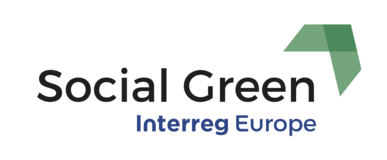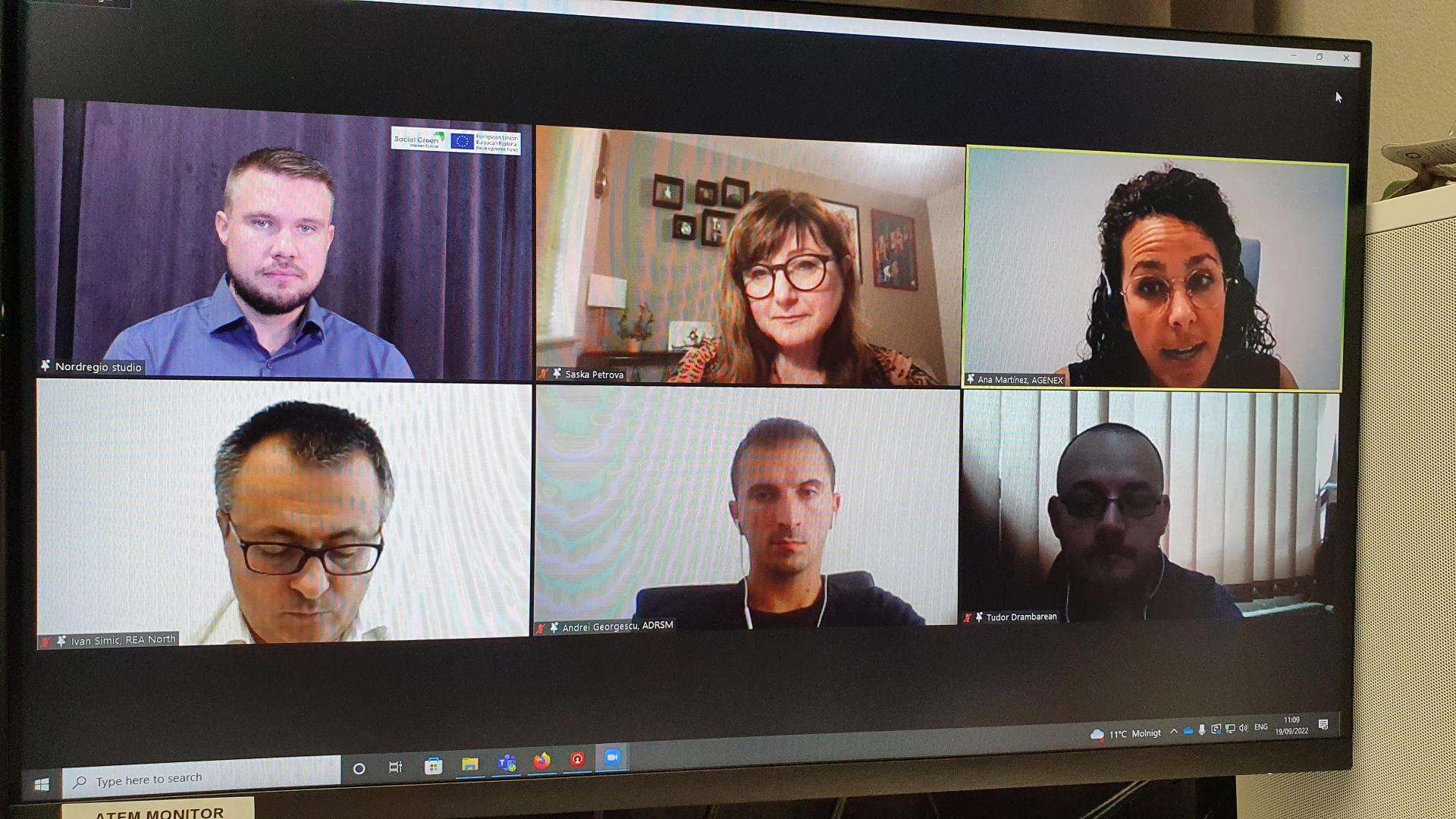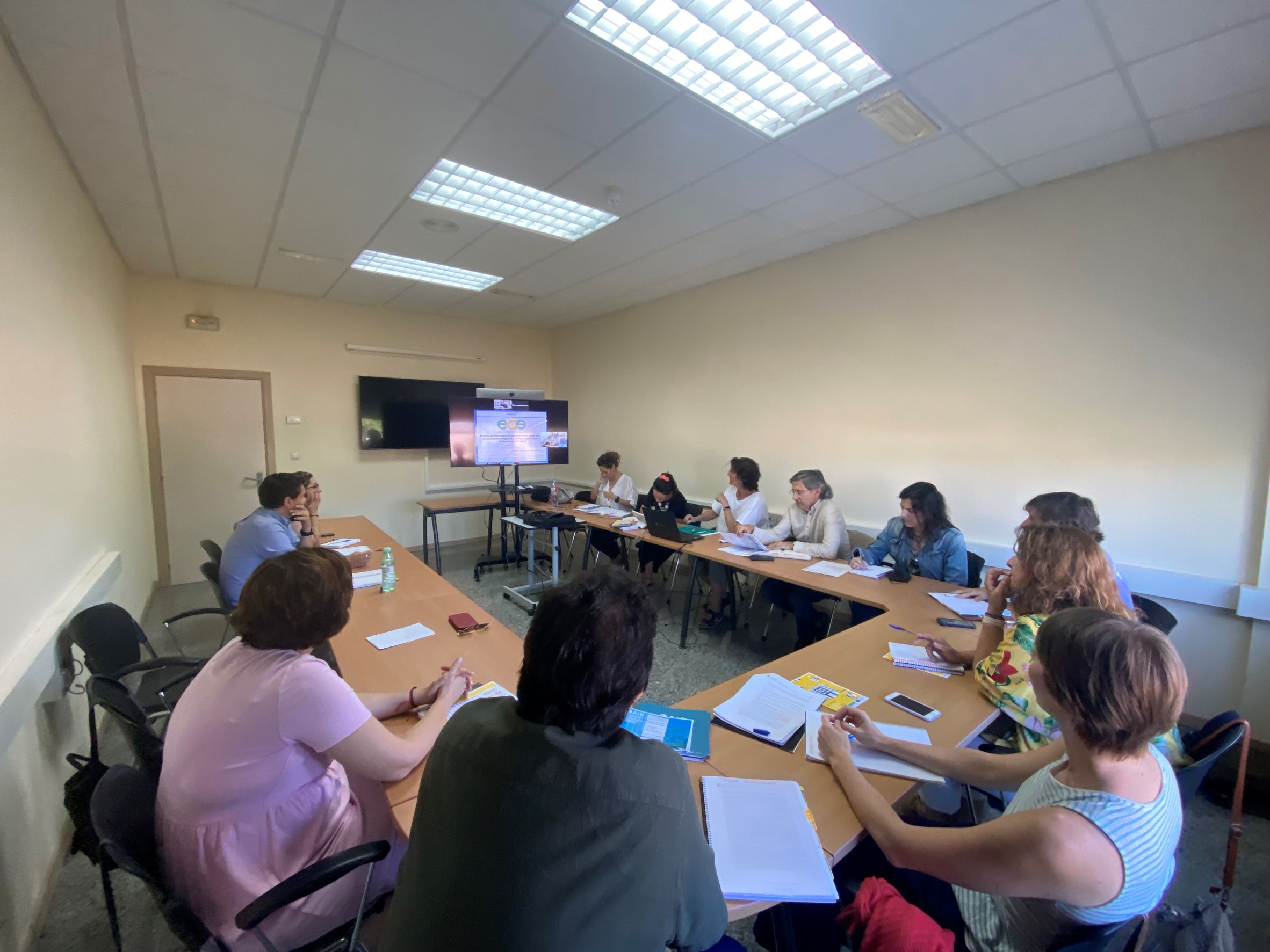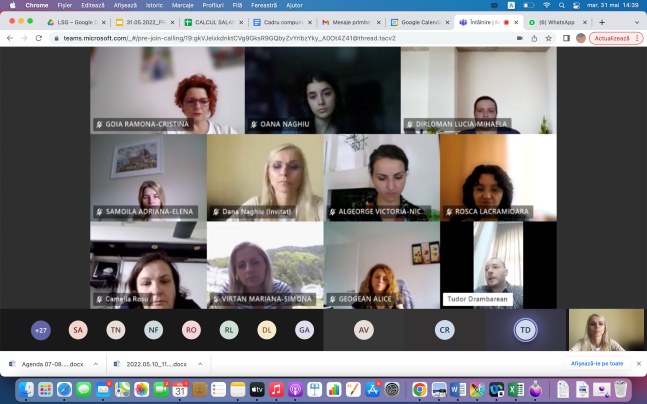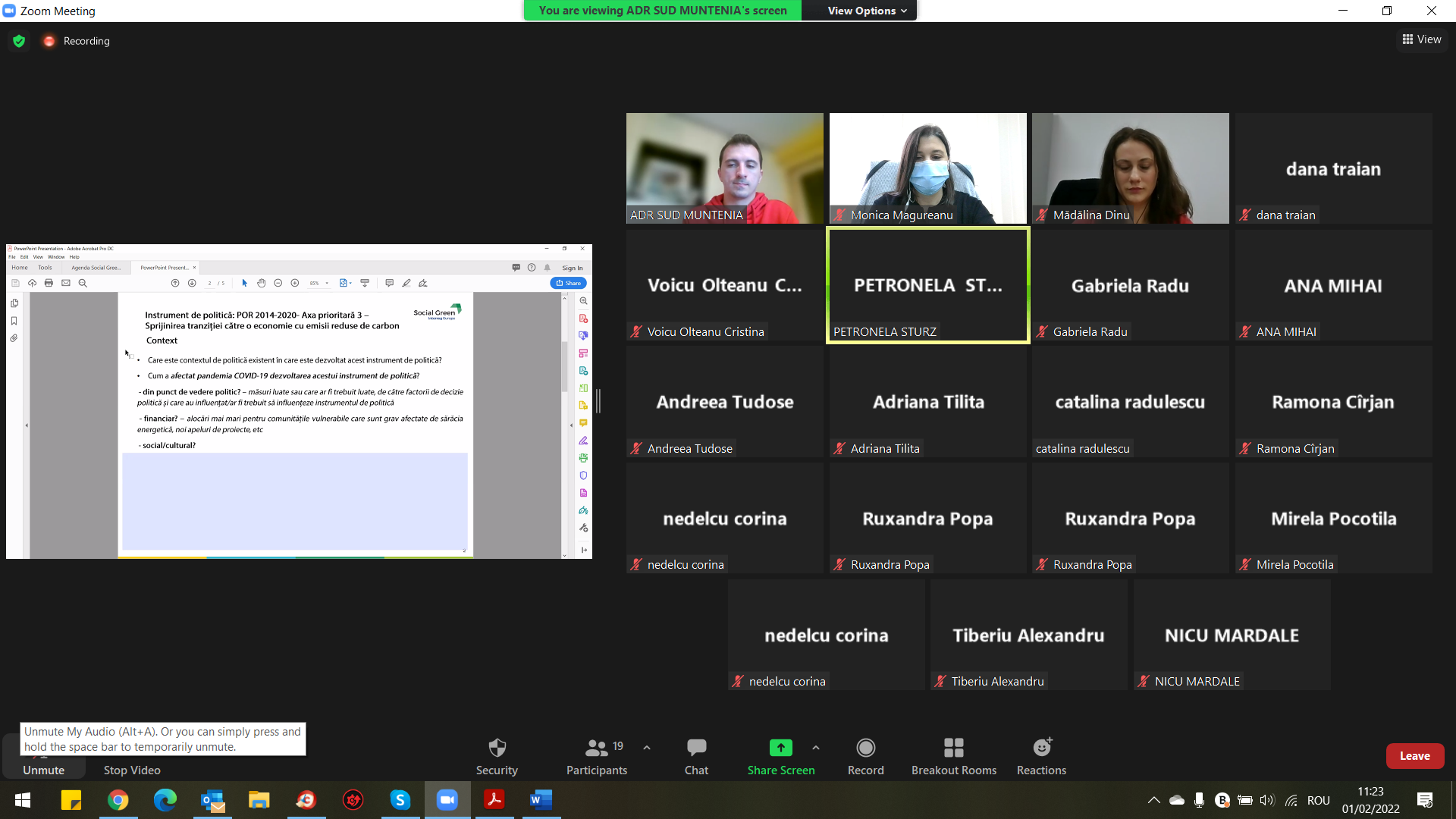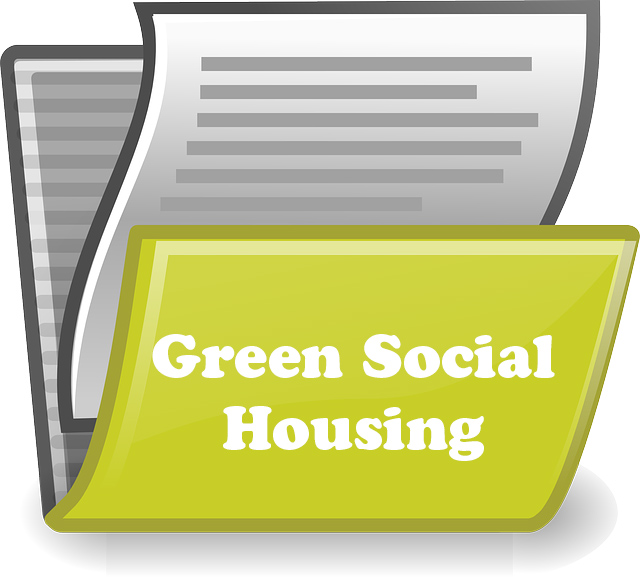For Social Green’s third interregional event, project partners gathered in Badajoz, Spain, for two days of knowledge exchange. Hosted by the Spanish energy agency AGENEX and coordinated by the lead partner Nordregio, the workshop lasted two days and involved opportunities for the energy agencies and municipalities from Spain, Romania, and Croatia to discuss strengths—such as existing expertise—and weaknesses—such as rising construction prices and lack of tenant support—of their energy retrofit work. Project partners were also joined by representatives from their local stakeholder groups to participate in discussions as well as study trips to social housing rehabilitation sites throughout the Extremadura region.
During the first workshop day, Alba Iulia Municipality (AIM; Romania) and Regional Energy Agency North (REAN; Croatia) provided updates on their Pilot Actions. In AIM, the partners are working to promote the use of renewable energies to increase energy efficiency in the social housing sector. In this pilot action, AIM is proposing a technical solution for a social housing apartment building where existing solar panels are not properly functioning. The solution involves purchasing equipment for reactivating the solar panels in order to reduce dependency on conventional fuels, but this also involves managing the communication with tenants by describing the measures and the benefits it will provide.
Meanwhile REAN just held a public launch of their solar mapping tool for the City of Varaždin, with great interest from citizens as well as the mayor. The tool involved identifying households that have the opportunity to apply for the national programme of energy retrofit of family homes of people living in energy poverty, and individual meetings with representatives from various groups (such as the Society for Sustainable Development Design and the Faculty of Electrical Engineering and Computing) to gain valuable information for the survey. The solar mapping tool will show users an estimated cost and energy savings for installing solar power to buildings as well as show opportunities for subsidies for the rehabilitation work. Both Pilot Actions from AIM and REAN will be presented at the project’s final event on 19 September 2022.
All Social Green partners presented their status in conducting self-assessments of their policy instrument, including the SWOT analyses which they conducted with their local stakeholder groups. These presentations were followed by a workshop session in which partners evaluated strengths at risk of becoming weaknesses, weaknesses with potential to become opportunities, and opportunities that should be prioritised to become strengths. The workshop session enabled partners to exchange learnings and discuss solutions across their regions/municipalities.
On Day 2, the Social Green partners made two study visits. The partners toured a housing site in Zafra and in Mérida where retrofit work has been implemented, but many challenges remain, such as financial concerns for tenants who cannot afford to pay for rent let alone energy costs. The success of energy retrofit work in social housing, however, was also made known through the demonstrations of zero energy buildings with low carbon footprints by using sustainable insulation and building materials and installing solar PV. Partners also gathered for a presentation from REHABITA, a programme developed through the regional government in Extremadura that transfers ownership of empty housing in need of refurbishment (including energy renovations) to a public company that can provide the rehabilitation and then offer the housing at an affordable rental price.
After many months of connecting online alone, the opportunity to host a face-to-face dialogue with partners who share a passion for improving the quality of life of their citizens was valuable. Importantly, the interregional meeting re-ignited enthusiasm for the final months of the Social Green project.
